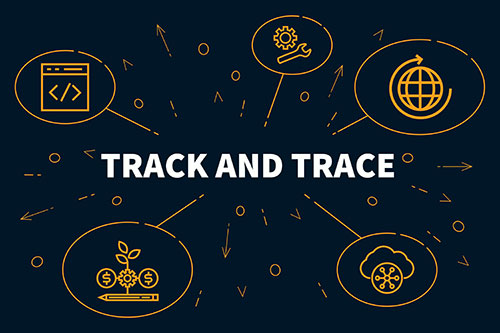What is supply chain serialization and how do manufacturing reap its benefits? Let’s look at serialization for product traceability in pharma and food manufacturing.
Traceability is a key component of the modern supply chain. It lets supply chain providers understand how inventory moves across the network. Traceability adds visibility from a material’s origin to the product’s delivery.
In some industries, traceability is also a legal rule. For example, take the pharmaceutical industry. Federal regulations in the U.S. mandated traceability of prescription drugs as part of the Drug Supply Chain Security Act (DSCSA). To ensure patient safety, the DSCSA requires pharmaceutical companies and distributors to identify items throughout the supply chain.
Likewise, the FDA’s Food Safety Modernization Act (FSMA) also requires traceability for food suppliers. The goal is to reduce the risks of food borne illnesses. Plus, the FSMA pinpoints goods using unique identifiers to start recalls when necessary.
Serialization is one component of traceability, identifying products down to the item level. Using barcoding and RFID, devices can read each item. Then the devices report location and status to a back-end system.
This gives supply chain providers real-time insights into a serialized product’s history, including chain of custody. Manufacturers and distributors can ensure regulatory compliance to mandates such as the DSCSA and FSMA. Besides, supply chain serialization provides greater integrity and the ability to process returns and rebates.
Full product traceability is perhaps the most important result of serialization. In instances needing recall management, it’s possible for the manufacturing run to remain intact. This is possible by recalling only the defective batches with specific serial numbers.
As a result, manufacturers save significant amounts of money in their business processes. Serialization separates the good from the bad without disrupting the entire manufacturing process.
Serialization and traceability also offer significant operational benefits. For example, manufacturers can see improved data accuracy and higher productivity.
Supply chain professionals believe that serialization leads to better inventory management. Plus, it yields greater chain integrity, and the ability to process returns.
Supply chain managers with access to serialized data can track an item’s real-time status. As a result, manufacturers can streamline their operations through enhanced accuracy and efficiency.
The benefits of serialization go far beyond cost savings. Being able to track and trace the source of recalled products, results in quick removal from store shelves.
Serialization in the supply chain provides many business benefits for both manufacturers and consumers. Radley’s product serialization solution lets you to track multiple data elements with a single scan. Talk to a Radley product specialist today to learn more.

